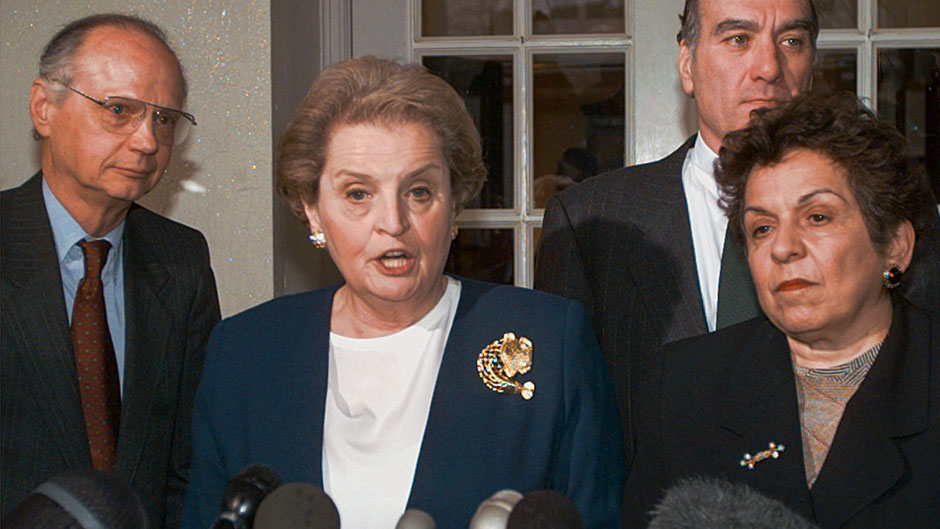Her term as the first female secretary of state had ended nine years ago. But slowing down wasn’t part of Madeleine Albright’s philosophy. She still had plenty to do, and one of the activities on her post-Clinton administration career included accepting an honorary degree from the university where her friend and colleague, Donna Shalala, served as president.
A child refugee from Czechoslovakia whose family escaped Nazi Germany, and almost certain death in a concentration camp, Albright received an honorary doctorate degree at the University of Miami’s commencement ceremony for the College of Arts and Sciences on May 12, 2006.
Albright, who was instrumental in shaping Western foreign policy in the aftermath of the Cold War and who championed the expansion of NATO, died Wednesday of cancer, her family announced. She was 84.
Members of the University community reflected on her passing.
“We actually met when I was in graduate school on the Humphrey campaign and served in the Carter administration together,” former University of Miami President Donna E. Shalala, who was secretary of Health and Human Services in the Clinton administration, recalled of Albright. “During the Clinton administration on the night of the State of the Union address, she would host the women on the Cabinet for dinner, then we would all go off to attend the address.”
Sixteen years after Albright accepted an honorary degree from the University, the former secretary of state’s advice to graduates still resonates with Megha Garg, who accepted her degree in biology and international studies on that day and addressed graduates as the student speaker.
“I was honored to share the stage with Secretary Albright on my graduation day,” said Garg, who is now an associate professor of clinical medicine and associate chief of the Division of Hospital Medicine at the University of California, San Francisco. “Her presence gave our commencement ceremony a feeling of gravitas, and her words encouraged us to approach the future with passion and optimism. I remain inspired by her as a pioneering woman and leader in our country,” Garg added.
“Gracious, engaging, and brilliant” is how Pat Whitely, senior vice president for student affairs, remembered Albright. “What I believe she enjoyed most was receiving her honorary degree from her dear friend and colleague, Donna Shalala.”
Dina Birman, a professor in the School of Education and Human Development, who studies the acculturation and adjustment of immigrants and refugees and was herself a child refugee, remembers Albright was “an ardent advocate for refugee resettlement.”
“She understood the importance of providing refuge to those displaced by war and believed that America could lead the world in this way,” Birman explained. “It is the case that many people who devote their careers to refugee work have a personal connection to the refugee experience, and that was the case for her as well. I often think of her and Albert Einstein as examples of what the country has to gain by admitting refugees.”

